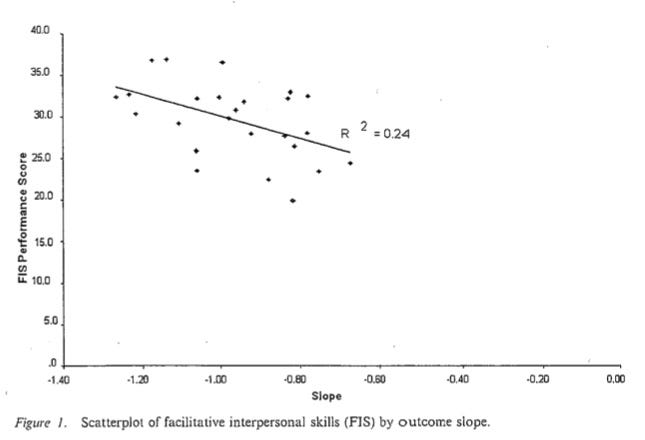Frontiers Friday 105 Alliance (Part II) ⭕️
A new video on how you can learn from client's perspective of the working alliance over time, as well as some significant studies on how engagement abilities actually translates to client outcomes.
I haven't seen my folks since the pandemic hit. Yesterday, my parent arrived from Singapore.
"That's great they get to come here now," said one of my colleagues. "They're staying with you?"
"Yes."
"For how long?"
"3 months," I replied.
"Oh wow..."
Nearly all of my local friends had the same reaction. Three months sounds like a long time to have your parents under the same roof. But so does two and a half years of not seeing them in person.
I can see they've aged abit. So have I.
I wished I had the money to pay for the immigration to Australia at about $45k per person. But that's not possible.
I recently learned that one of my colleagues, who has an established and successful career in this country after more than 2 decades, is moving back home. His father is ill and he is going back to look after him. I'm deeply moved by his sense of duty. He and his wife and child are leaving behind their homes to do what they are compelled to do.
In these 2+ years, I've known friends, colleagues and clients who have lost their loved ones. In some instances, families weren't allowed to attend the funeral.
How have we come to such tyrannical over-reach that robbed us of our elemental foundations as social creatures?
I mean, even the term “social distancing” was the wrong semantic to use. (On that note, “climate change” should be called something more severe. Seth Godin at one stage suggested “climate cancer.” Words do m
I hope we have learned not to tighten our neurosis for a need for control when fear hits us again.
I hope we learn to humanise our existence, for the sake of our future-cestors.
The Working Alliance: Perspective Getting (Not Perspective Taking) (Part II)
And now, back to the program.
This week, we have a new video on how you can learn from client's perspective of the working alliance over time, as well as some significant studies on how engagement abilities actually translates to client outcomes.
In case you've missed Part I of this series, here it is: FF104 Alliance (Part I)
🎥 New Video from Frontiers, Therapy Tip of The Week #4: The Devil is in the Details Between Sessions
In this week's Therapy Tip of the Week (TTW), I address a subject that you as a psychotherapist would be more than familiar with—except that it's not what you expect.👓 Read: The Definition of Working Alliance
What constitutes as working alliance has lasted almost as old as I am. Alliance is more than just about emotional connection. According to Edward Bordin's 1979 article, working alliance has been defined as
i. Relational bond
ii. Agreement on the goals, and
iii. Agreement on the means, methods and tasks to reach those therapeutic goals.
There are significant implications to operationalising this in therapy. For instance, an agreement of the goals and direction of therapy has a huge impact on treatment outcomes, or the lack of.
(See Related post: What Are the Perennial Pillars for Psychotherapists?)And you could be doing what is the cutting edge of “evidence-based practice,” but if it doesn't sit well with your client, you are more likely to have a poor working relationship, and thereby increase the odds of dropout.
(Dropout is a topic we will cover in-depth in future series of Frontiers Friday, so be so to subscribed if you haven't already.)📜 Research: Facilitative Interpersonal Skills as a Predictor of Therapist Success
This landmark study in 2009 opened up the doorway to our understanding of therapists' ability contributing to alliance formation. Tim Anderson and colleagues found that therapists’ facilitative interpersonal skills (FIS), the ability to perceive, understand and communicate impactfully, accounted for variance of outcomes between therapists.
Said in another way, FIS accounted for variance in outcomes due to differences in therapists abilit to handle challenging situations. Tim Anderson et al's FIS study was a real inspiration to our Difficult Conversations in Therapy (DCT) project. (More on DCT in the coming future.)📜 Research: Therapist facilitative interpersonal skills and training status: A randomized clinical trial on alliance and outcome
As a follow-up study, Tim Anderson and colleagues published a fascinating paper in 2015 (the authors made this available in Researchgate).
They found that a therapist's relational ability before attending graduate school, was a significant predictor of outcomes and alliance formation. The impact of training was “negligible”. In other words, a 2-year relevant doctoral training had no significant effect on client outcomes. Intriguingly, though not statistically significant, untrained therapists had higher alliance ratings! In other words, there is a possibility that a trainee’s ability prior to receiving any training, matters more than the effects of training. So, the real question we should be asking is, what the heck are we doing in our training programs?⏸ Words Worth Contemplating:
“When our hearts are small . . . We can’t accept or tolerate others and their shortcomings, and we demand that they change. But when our hearts expand . . . We accept others as they are, and then they have a chance to transform.”
~Thich Nhat Hanh
Reflection
How is my heart? (Take a moment of pause)
What do I need to do to teach my heart to be open and expansive?
What areas do I need to soften, and not harden?
BIG HUGS TO NEW PEOPLE WHO ARE AT THEIR FRONTIER!
If you've just joined us, I'm glad you can join us at the "bleeding edge." Feel free to check out the back catalogue of Frontiers of Psychotherapists Development (FPD). You might also want to go into specific topics in the FPD Archives like
And if you want to see past newsletters, the entire archive is now made available in substack.
In case you missed it, see the most recent missives
Devotion to the Craft (6 Parts)
Caring for People in Organisations (3 Parts)
Clinical Supervision (3 Parts)
Feedback Informed Treatment (4 Parts)
Unintended Consequences (2 Parts)
Deep Learner (4 Parts)
Going Further with Deep Learner and The Use of Obsidian (6 Parts)
See What You Hear, Hear What You See (4 Parts)
Trauma (3 Parts)
Deliberate Practice (5 Parts)
Empathy (6 Parts)
Therapist Effects (2 Parts)
Client Point of View (4 Parts)
Tech Tools for Therapists (4 Parts)
Emotions (6 Parts)
Sensitivity (3 Parts)
My other blog site is called FullCircles: Reflections on Living
By the way, don't feel bad if you want to unsubscribe to this newsletter. This might not be for you. The last thing I want is to add to the anxious clutter of our inboxes.
Daryl Chow Ph.D. is the author of The First Kiss, co-author of Better Results, and The Write to Recovery, and the forthcoming books, Creating Impact,The Field Guide to Better Results
Note: These newsletter are free, many hours are spent handpicking the curated list that make it to Frontiers Friday, as well as writing the essays and recording the videos and podcasts. Amazon affiliate links, if any, are to help ease the cost of these missives.
P/s: Please excuse any typos!





It doesn't surprise me that "untrained therapists had higher alliance ratings". I've noticed the effect myself while starting as an advisor. Instead of listening I was so focused on getting the content and my own objectives right, the client faded more into the background. Instead of a focus on the relationship, it became about an outcome to be achieved, with our relationship more of a tool to achieve that. I think I got it the wrong way around.